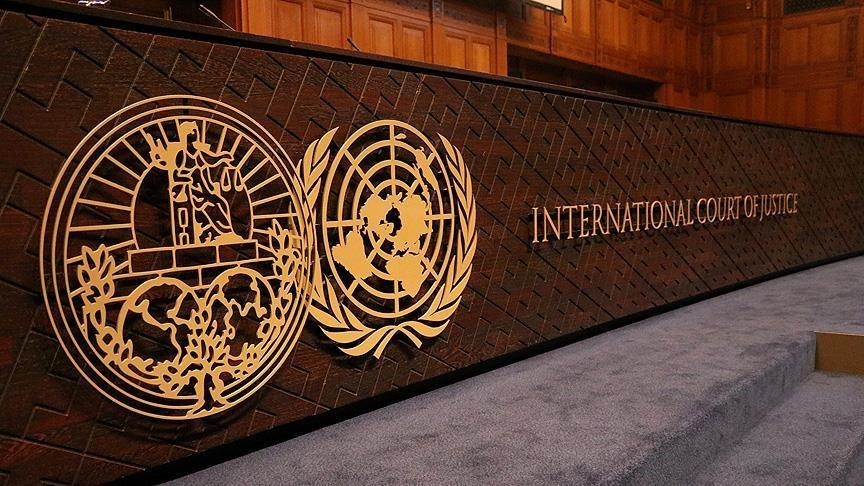Israel remains bound by international law amid ongoing occupation of Palestinian territories, Egypt tells ICJ
ICJ is holding hearings this week to assess Israel’s legal obligations for provision of humanitarian aid, Palestinian people's right to self-determination

ISTANBUL
Egypt told the International Court of Justice (ICJ) on Monday that Israel remains bound by its obligations under international humanitarian law and international human rights law as long as its occupation of Palestinian territories continues.
Egypt’s Assistant Foreign Minister Hatem Kamaleldin Abdelkader said, "There is no doubting the United Nations role, together with its agencies and other humanitarian organizations, in alleviating the humanitarian suffering of the Palestinian people, a situation entirely of Israel’s own creation."
Describing the situation in Gaza, Abdelkader accused Israel of imposing a "brutal siege" on civilians, calling it "the most recent chapter in Israel’s systematic weaponization of humanitarian assistance," amid what he called a "vicious assault" on the Gaza Strip.
"There is no doubt that these practices are part of a widespread, systematic and comprehensive state policy to depopulate the OPT (Occupied Palestinian Territories) and effect its de facto annexation," he said.
Abdelkader further charged that Israel has forcibly transferred Palestinians to areas no more secure than those they had fled and is "intentionally creating conditions intended to make Gaza uninhabitable."
'No possible moral or legal justification for siege and starvation of more than 2M civilians'
Joining Egypt’s oral submissions, Jasmine Moussa, legal advisor to the Egyptian Foreign Ministry, described Israel’s military campaign as aimed at achieving "a far more insidious end" — the removal of Palestinians from their land and their extermination "under the fog of war."
"This is undeniably Israel’s war aim embedded in its systematic policies to deprive the Palestinians of food, to decimate their hospitals, to deny access to and discredit international independent humanitarian actors, to seize and fragment massive areas of land under the pretext of so-called security zones, and to expand colonial settlement activity in the West Bank, eroding the basis for the two-state solution," Moussa said.
She stressed, "There can be no possible, moral or legal justification for the prolonged siege and starvation of more than 2 million civilians (in Gaza)."
The ICJ is holding hearings this week to assess Israel’s legal obligations for the provision of humanitarian aid and the Palestinian people's right to self-determination, following a request from the UN General Assembly.
Representatives from 40 countries and four international organizations are expected to present oral submissions during the proceedings, including Türkiye, Malaysia, South Africa, China, Russia, Spain, Ireland, Brazil, Qatar, Saudi Arabia, and Egypt.
Key organizations, including the UN, the Organization of Islamic Cooperation, and the Arab League, will also contribute.
Israel, which is among the countries that submitted written statements, will not make an oral submission during the hearings.
Israel also faces a genocide case at the ICJ for its war on the Gaza Strip, which since October 2023 has killed more than 52,000 Palestinians and reduced much of Gaza to rubble.
The International Criminal Court issued arrest warrants last November for Netanyahu and his former Defense Minister Yoav Gallant for war crimes and crimes against humanity in Gaza.
Anadolu Agency website contains only a portion of the news stories offered to subscribers in the AA News Broadcasting System (HAS), and in summarized form. Please contact us for subscription options.







